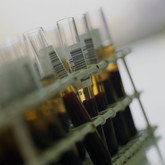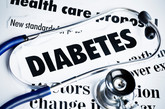Biosimilars/Research
Safety and immunogenicity of originator and biosimilar trastuzumab
A study carried out by international researchers reported results from the HERiTAge trial of Mylan/Biocon’s biosimilar trastuzumab, Ogivri (trastuzumab‑dkst) [1].
Positive phase III results for Amgen’s infliximab biosimilar
Biotech giant Amgen announced on 27 June 2018 positive data from a phase III study of their infliximab biosimilar (ABP 710) compared to Remicade (infliximab).
Biosimilars: implications for oncologists
In 2015, the US Food and Drug Administration (FDA) approved its first biosimilar, filgrastim-sndz, a biosimilar of the granulocyte colony-stimulating factor filgrastim. Since then, FDA has approved four additional biosimilar tumour necrosis factor α inhibitors, and in May 2017, the Oncology Drug Advisory Committee voted in favour of approval of an epoetin alfa biosimilar. Three biosimilar monoclonal antibodies (mAbs) have been approved in the US. Although their indications are for chronic inflammatory diseases, according to authors Robert Rifkin and Susan Peck, oncologists should become familiar with these agents, because they may need to administer these drugs for patients who have concurrent chronic inflammatory conditions [1].
Positive results for infliximab and trastuzumab biosimilars
Celltrion Healthcare (Celltrion) and Samsung Bioepis have both announced positive results for their infliximab and trastuzumab biosimilars, respectively.
Biosimilarity testing using very low doses of rituximab
Rituximab is a chimeric, monoclonal antibody directed against CD20 expressed on B lymphocytes [1]. Currently approved indications for use are non-Hodgkin lymphomas, chronic lymphatic leukaemia, rheumatoid arthritis, granulomatosis with polyangiitis and microscopic angiitis [2]. However, rituximab is frequently used ‘off label’ for the treatment of numerous antibody-dependent autoimmune diseases [3].
Scientific rationale for extrapolation of cancer indications
Extrapolation involves extending and applying the data from clinical studies regarding one medical condition to another medical condition. Once biosimilarity has been proven, biosimilars can also be approved for one or more additional indications held by the reference product, without the need for clinical data in those indications. Author Michinori Ogura from the Tokai Central Hospital, Gifu, Japan and colleagues from France and South Korea investigated the scientific rationale for extrapolation using the rituximab biosimilar CT-P10 as an example [1].
Biosimilar insulins have same efficacy and safety as reference biologicals
Researchers from the US have found that biosimilar insulins have comparable safety and clinical efficacy as their reference biologicals [1].
Savings with use of biosimilar trastuzumab for breast cancer patients in Croatia
Breast cancer is worldwide the most common cancer in women. In 2012 alone, there were approximately 464,000 new cases and 131,000 deaths from breast cancer in Europe. In Croatia, breast cancer was the fourth leading cause of death among women and ninth in both sexes in 2016.
Biosimilars and the role of regulatory authorities
According to authors Hye-Na Kang and Ivana Knezevic, from the World Health Organization (WHO), market access to biosimilars can be restricted by several factors [1]:
(i) manufacturing processes may be expensive and complex
(ii) patents on the manufacturing processes of the original product may not have expired
(iii) biosimilar manufacturers may have limited access to data on the original product
(iv) appropriate regulatory frameworks may not be in place
(v) government policies on switching to biosimilars, pricing and reimbursement may be lacking.
Life cycle and regulatory evaluation of biosimilars
The life cycle of a biosimilar, like any biological, starts with research and development, then manufacturing, and is followed by regulatory evaluation of quality, safety and efficacy for both licensing and post-licensing oversight. Once licensed, a biosimilar is an individual product and post-licensing evaluation should be carried out like any other biological. The only difference for a biosimilar is that regulatory approval relies on the safety and efficacy data and knowledge gained during the development and licensing of an originator, or reference product.












